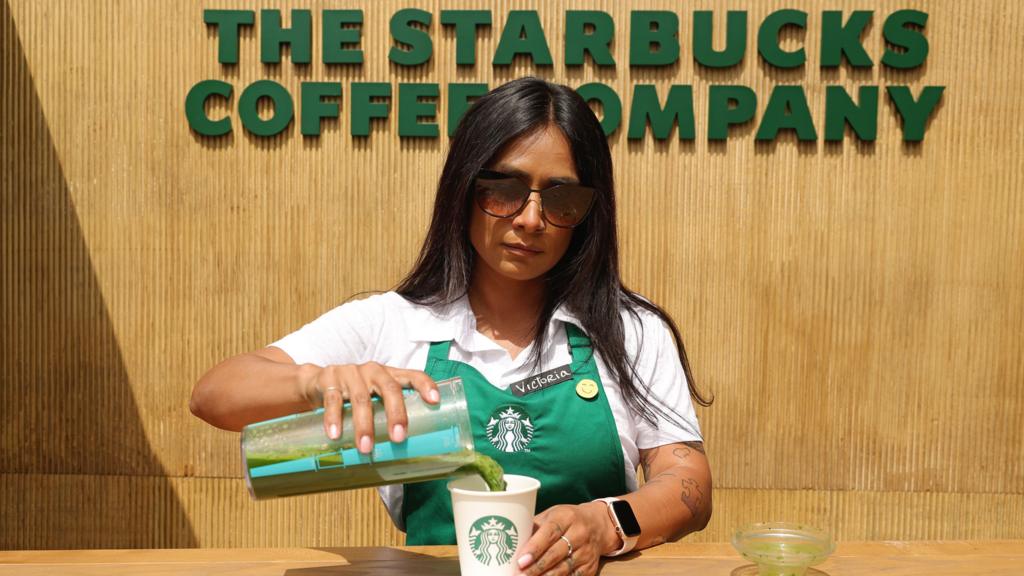Starbucks plans to increase its barista workforce while scaling back on automation initiatives, according to chief executive Brian Niccol.
This strategy, aimed at recapturing customers, contrasts with the broader industry shift toward technology adoption to curb expenses.
On Tuesday, Starbucks reported quarterly results that fell short of forecasts, as sales continued to decline.
Mr Niccol joined the company in 2024 with a mandate to revitalize Starbucks amid ongoing cost pressures and more cautious consumer spending.
“Over the last couple of years, we’ve actually been removing labour from the stores. I think with the hope that equipment could offset the removal of the labour,” Mr Niccol told investors.
“What we’re finding is… that wasn’t an accurate assumption with what played out.”
The company began trialing increased staffing at select locations following Mr Niccol’s arrival in September 2024, expanding the approach to approximately 3,000 stores this year.
Concurrently, Starbucks announced a pullback on its Siren Craft System—a suite of advanced beverage-making equipment and technology introduced in 2022 to streamline operations—named after its iconic logo.
Niccol acknowledged that increasing staff would raise costs but expressed confidence that the investment would drive growth.
In addition to hiring more baristas, Starbucks is refreshing its store environments and menus, and updating the company dress code.
In April, Starbucks announced that baristas would wear dark, solid-colored shirts to highlight its signature green apron and foster a sense of familiarity for customers.
Earlier this year, Starbucks reversed a longstanding policy at its North American cafés, now requiring a purchase for use of its facilities.
The move shifts away from the open-door policy established six years ago, which had allowed non-paying customers to access seating and restrooms.
However, efforts to revive growth have so far yielded limited success.
The company’s latest financial report revealed that global sales dipped by 1% in the three months ending March, marking the fifth consecutive quarterly decline.
While US sales, Starbucks’ largest market, exhibited continued weakness, results improved in China and Canada.
Shares of Starbucks dropped more than 6.5% in after-hours trading following the earnings release.
Derek Miles, even in his 90s, would routinely attend office meetings.
Independent US coffee shops, which rely almost entirely on imports for their beans, are increasingly concerned about rising prices.
The impending rise in tariffs could soon make a cup of coffee, as well as other consumer goods, more expensive.
Major supermarket chains, Morrisons and Sainsbury’s, have announced a wave of café closures—though customers continue to advocate for their preservation.
Shop owners warn that further price increases could adversely affect their businesses.

